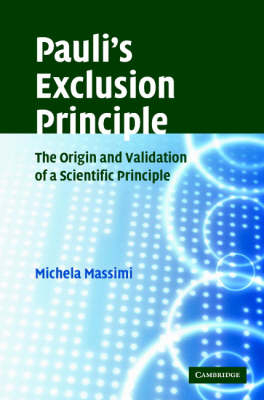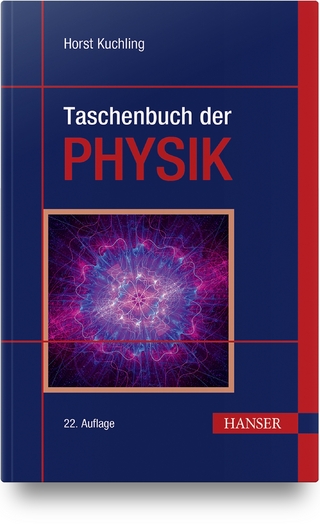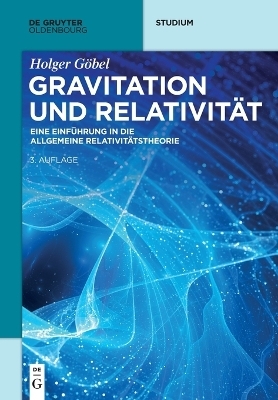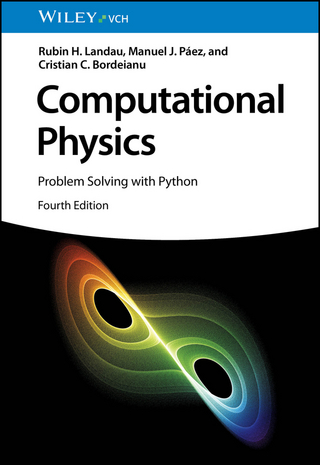
Pauli's Exclusion Principle
The Origin and Validation of a Scientific Principle
Seiten
2005
Cambridge University Press (Verlag)
978-0-521-83911-2 (ISBN)
Cambridge University Press (Verlag)
978-0-521-83911-2 (ISBN)
There is hardly another principle in physics with more far-reaching consequences than Pauli's exclusion principle. This book explores the principle's origin, its embedding into quantum mechanics, and later experimental validation and analyses the principle's emergence and validation from historical and philosophical viewpoints. The book will interest philosophers, historians and physicists.
There is hardly another principle in physics with wider scope of applicability and more far-reaching consequences than Pauli's exclusion principle. This book explores the principle's origin in the atomic spectroscopy of the early 1920s, its subsequent embedding into quantum mechanics, and later experimental validation with the development of quantum chromodynamics. The reconstruction of this crucial historic episode provides an excellent foil to reconsider Kuhn's view on incommensurability. The author defends the prospective rationality of the revolutionary transition from the old to the new quantum theory around 1925 by focusing on the way Pauli's principle emerged as a phenomenological rule 'deduced' from some anomalous phenomena and theoretical assumptions of the old quantum theory. The subsequent process of validation is historically reconstructed and analysed within the framework of 'dynamic Kantianism'. The variety of themes skilfully interwoven in this book will appeal to philosophers, historians, scientists and anyone interested in philosophy.
There is hardly another principle in physics with wider scope of applicability and more far-reaching consequences than Pauli's exclusion principle. This book explores the principle's origin in the atomic spectroscopy of the early 1920s, its subsequent embedding into quantum mechanics, and later experimental validation with the development of quantum chromodynamics. The reconstruction of this crucial historic episode provides an excellent foil to reconsider Kuhn's view on incommensurability. The author defends the prospective rationality of the revolutionary transition from the old to the new quantum theory around 1925 by focusing on the way Pauli's principle emerged as a phenomenological rule 'deduced' from some anomalous phenomena and theoretical assumptions of the old quantum theory. The subsequent process of validation is historically reconstructed and analysed within the framework of 'dynamic Kantianism'. The variety of themes skilfully interwoven in this book will appeal to philosophers, historians, scientists and anyone interested in philosophy.
Michela Massimi is a Research Fellow at Girton College, University of Cambridge, affiliated to the Department of History and Philosophy of Science.
1. The exclusion principle: a philosophical overview; 2. The origins of the exclusion principle: an extremely natural prescriptive rule; 3. From the old quantum theory to the new quantum theory: reconsidering Kuhn's incommensurability; 4. How Pauli's rule became the exclusion principle: from the Fermi-Dirac statistics to the spin-statistics theorem; 5. The exclusion principle opens up new avenues: from the eightfold way to quantum chromodynamics.
| Erscheint lt. Verlag | 4.8.2005 |
|---|---|
| Verlagsort | Cambridge |
| Sprache | englisch |
| Maße | 161 x 236 mm |
| Gewicht | 500 g |
| Themenwelt | Naturwissenschaften ► Physik / Astronomie |
| ISBN-10 | 0-521-83911-4 / 0521839114 |
| ISBN-13 | 978-0-521-83911-2 / 9780521839112 |
| Zustand | Neuware |
| Haben Sie eine Frage zum Produkt? |
Mehr entdecken
aus dem Bereich
aus dem Bereich
Eine Einführung in die Allgemeine Relativitätstheorie
Buch | Softcover (2023)
De Gruyter Oldenbourg (Verlag)
64,95 €
Problem Solving with Python
Buch | Softcover (2024)
Wiley-VCH (Verlag)
109,00 €


